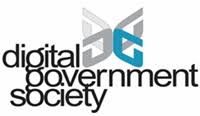Government Data Science Teams
A Framework for Implementing Strategic Monitoring Solutions
DOI:
https://doi.org/10.59490/dgo.2025.925Keywords:
Government Data Science, Strategic Policy Monitoring, Agile Frameworks for Public SectorAbstract
This paper presents a framework developed by Pernambuco’s Strategic Monitoring Data Science Team to design and implement data-driven solutions for monitoring public policies. Using an action research methodology, the study integrates data science, iterative development, and stakeholder engagement. Despite being major producers and consumers of data, governments still face significant challenges in applying data science for policy monitoring, including data quality issues, legal constraints, and institutional silos. Existing frameworks such as CRISP-DM, Scrum, and Kanban are either too technical or primarily focused on software development rather than the policy-driven decision-making required in government settings. The Strategic Monitoring Team was established within Pernambuco’s Secretariat of Strategic Projects, comprising a Chief Data Scientist as team leader, a Project Manager, three Data Scientists specializing in modeling, engineering, and visualization, and a Trainee. The team operates through an iterative five-step process: Diagnose, which involves meetings with stakeholders to identify policy issues; Plan, where internal discussions define solutions; Act, which includes the development of dashboards, reports, and applications; Evaluate, to review whether the solutions address policy needs; and learn, focusing on documenting findings and improving tools. To enhance their workflow, the team adapted Scrum methodology by incorporating policy research alongside software development, tracking projects via Notion, and deploying solutions using R and Shiny Proxy. The study highlights that traditional frameworks such as Scrum and CRISP-DM require adaptations to effectively integrate research aspects and government governance structures. By bridging data insights with decision-making processes, the team successfully balances software development, policy research, and institutional needs. The findings emphasize the necessity of specialized data science frameworks tailored for government applications, ensuring a structured yet flexible approach to strategic policy monitoring through data-driven
solutions.
Downloads
References
Aho, T., Kilamo, T., Lwakatare, L. E., & Yaman, S. (2021). Managing and composing teams in data science: An empirical study. In 2021 IEEE International Conference on Big Data (Big Data). IEEE. https://doi.org/10.1109/BigData52589.2021.9671737.
Brady, H. E. (2019). The challenge of big data and data science. Annual Review of Political Science, 22(1), 297-323. https://doi.org/10.1146/annurev-polisci-090216-022929.
Brown, T. (2020). Design thinking: Uma metodologia poderosa para decretar o fim das velhas ideias. Elsevier.
De Toni, J., & Dorneles, R. (Orgs.). (2022). Ciência de dados em políticas públicas: Uma experiência de formação (Colaboração de N. Koga, H. Macedo & A. Pereira). Enap. [link].
Filgueiras, F., & Lui, L. (2023). Designing data governance in Brazil: An institutional analysis. Policy Design and Practice, 6(1), 41-56. https://doi.org/10.1080/25741292.2022.2065065.
Giest, S. 2017. “Big Data for Policymaking: Fad or FastTrack?” Policy Sciences 50 (3): 367–382. https://doi.org/10.1007/s11077-017-9293-1.
Guimarães, L. S., Toledo, G. L., Rodrigues, K. C. D. G., & Silva, P. N. (2025). Práticas ágeis no setor público: Estrutura de governança do Acordo de Reparação de Brumadinho à luz do framework Scrum. P2P & Inovação, 11(2), 1–28. [link].
Kim, M., Zimmermann, T., DeLine, R., & Begel, A. (2016). The emerging role of data scientists on software development teams. In 2016 IEEE/ACM 38th International Conference on Software Engineering (ICSE) (pp. 96-107). IEEE. https://doi.org/10.1145/2884781.2884783.
Kimball, R.; Ross, M. (2013). The Data Warehouse Toolkit: The Definitive Guide to Dimensional Modeling. Indianapolis: Wiley.
Klievink, B., Romijn, B.-J., Cunningham, S., & de Bruijn, H. (2017). Big data in the public sector: Uncertainties and readiness. Information Systems Frontiers, 19(2), 267–283. https://doi.org/10.1007/s10796-016-9686-2.
Natarajan, T., & Pichai, S. (n.d.). Transition from Waterfall to Agile Methodology: An Action Research Study. IEEE Xplore. Retrieved from [link].
Nielsen, O. B., Persson, J. S., & Madsen, S. (2019). Why governing data is difficult: Findings from Danish local government. In A. Elbanna, Y. Dwivedi, D. Bunker, & D. Wastell (Eds.), Smart working, living and organising (Vol. 533, pp. XX-XX). Springer, Cham. https://doi.org/10.1007/978-3-030-04315-5_2.
Olilla, S., & Yström, A. (2020). Action research for innovation management: Three benefits, three challenges, and three spaces. R&D Management, 50(3), 396–411. https://doi.org/10.1111/radm.12407.
Provost, F., & Fawcett, T. (2013). Data science and its relationship to big data and data-driven decision making. Big Data, 1(1), 51–59. https://doi.org/10.1089/big.2013.1508.
Rosa, M. R. da, & Pereira, E. N. (2021). Metodologias ágeis no contexto da administração pública: Análise de estudos de caso de implementação ágil. Revista do Serviço Público, 72(2), 479–497. [link]
Saarikallio, M., & Tyrväinen, P. (2023). Quality culture boosts agile transformation—Action research in a business-to-business software business. Journal of Software: Evolution and Process, 35(1), e2504. https://doi.org/10.1002/smr.2504.
Saltz, J. S., & Grady, N. W. (2017). The ambiguity of data science team roles and the need for a data science workforce framework. In 2017 IEEE International Conference on Big Data (BIGDATA). IEEE. https://doi.org/10.1109/BigData.2017.8258401.
Saltz, J. S., & Hotz, N. (2020). Identifying the most common frameworks data science teams use to structure and coordinate their projects. 2020 IEEE International Conference on Big Data (Big Data), 1615–1624. https://doi.org/10.1109/BigData50022.2020.9377813.
Scott, I., & Gong, T. (2021). Coordinating government silos: Challenges and opportunities. Global Public Policy and Governance, 1, 20–38. https://doi.org/10.1007/s43508-021-00004-z.
Schwaber, K., & Sutherland, J. (2020). The Scrum guide: The definitive guide to Scrum: The rules of the game. Scrum.org. [link].
Tripp, D. (2005). Action research: A methodological introduction. Educação e Pesquisa, 31, 443–466. https://doi.org/10.1590/S1517-97022005000300009.
Tukey, J. W. (1980). We need both exploratory and confirmatory. The American Statistician, 34(1,) 23–25. 10.1080/00031305.1980.10482706.
Vacari, I. (2015). Um estudo empírico sobre a adoção de métodos ágeis para desenvolvimento de software em organizações públicas (Dissertação de mestrado, Pontifícia Universidade Católica do Rio Grande do Sul). PUCRS Repositório Digital. [link].
Wickham, H.; Grolemund, G. (2016). R for Data Science: Import, Tidy, Transform, Visualize, and Model Data. O'Reilly Media. .
Young, E., & Quinn, L. (2002). Writing effective public policy papers: A guide for policy advisers in Central and Eastern Europe. Open Society Institute. Retrieved from [link].
Downloads
Additional Files
Published
How to Cite
Conference Proceedings Volume
Section
License
Copyright (c) 2025 Hugo Augusto Vasconcelos Meideros, André Leite Wanderley, Giogo de Carvalho Bezerra, Carlos Alberto Gomes de Amorim Filho, Rafael Zimmerle da Nóbrega, Felipe Gustavo de Moraes Ferreira

This work is licensed under a Creative Commons Attribution 4.0 International License.


